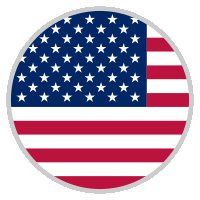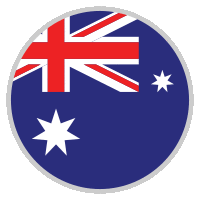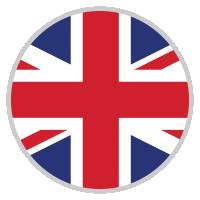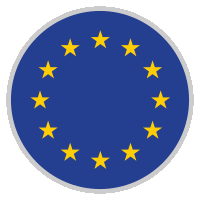- 3-Indolebutyric acid is a plant hormone in the auxin family and is an ingredient in many commercial horticultural plant rooting products.
-
Hyaluronan (HA) synthesis inhibitor
4-Methylumbelliferone is a selective inhibitor of Hyaluronan (HA) synthesis which is thought to function as an inhibitor via the depletion of UDP-glucuronic acid, the common substrate for HA synthesis. - 5-Aminolevulinic acid hydrochloride is a naturally occurring amino acid; precursor of tetrapyrroles in the biosynthesis of chlorophyll and heme.
- 7-Aminocephalosporanic acid is the core chemical structure for the synthesis of cephalosporin antibiotics and intermediates.
-
Hydrogen peroxide inhibitor
Acetanilide is used as an inhibitor in hydrogen peroxide and is used to stabilize cellulose ester varnishes. -
Antilipolytic agent
Acipimox is a niacin derivative used as a hypolipidemic agent.- A. Geneste, .et al. , BMC Pharmacol Toxicol, 2020, 21: 61 PMID: 32795383
-
Aesculin is a glucoside that naturally occurs in the horse chestnut (Aesculus hippocastanum). It is used in a microbiology laboratory to aid in the identification of bacterial species (especially Enterococci and Listeria).
- Alfacalcidol is an analogue of vitamin D.Alfacalcidol has a weaker impact on calcium metabolism than calcitriol, while having more potent effects on parathyroid hormone levels and the immune system, including regulatory T cells.
- Aminocaproic acid is used to treat excessive postoperative bleeding, especially after procedures in which a great amount of bleeding is expected,
-
Bergenin (Cuscutin) is an isocoumarin isolated from various medicinal plants. Shows mild anti-HIV activity, antihepatotoxic activity and antiulcer activity.
- Barai P, .et al. , Behav Brain Res, 2019, Jan 1;356:18-40 PMID: 30118774
- Beta Carotene is a strongly-coloured red-orange pigment abundant in plants and fruits. It is a precursor (inactive form) of vitamin A.
- Betamethasone is a potent glucocorticoid steroid with anti-inflammatory and immunosuppressive properties.
-
Bilobalide, a biologically active terpenic trilactone (terpinoid), derived from geranylgeranyl pyrophosphate (GGPP) is an inducer of cytochrome P450 enzymes CYP3A1 and CYP1A2. May contain properties to stop apoptosis activation of the phosphatidylinositol 3-Kinase pathway in SH-SY5Y cells.
- Bimatoprost is a prostaglandin analog/prodrug used topically (as eye drops) to control the progression of glaucoma and in the management of ocular hypertension
-
Biochanin A is an antiproliferative and anti-inflammatory agent that inhibits iNOS expression and lipopolysacharide (LPS)-induced nitric oxide production in macrophages. Additionally, Biochanin A displays the ability to block phosphorylation of IκBα and p38 MAPK, which prevents NF-κB activation. Furthermore, Biochanin A has been observed to suppress IL-6, IL-1β, and TNF-α production.
-
DprE1 inhibitor
BTZ043 (BTZ038, BTZ044) inhibits decaprenylphosphoryl-β-d-ribose 2?-epimerase, which is an enzyme which produces the cell wall of the pathogenic bacterium Mycobacterium tuberculosis. - Busulfan is a cell cycle non-specific alkylating antineoplastic agent, in the class of alkyl sulfonates.
- Butylscopolamine BR is an orally available bromide salt form of butylscopolamine which is a peripherally acting antimuscarinic, anticholinergic agent.
- Calcitriol (Rocaltrol) increases blood calcium levels ( [Ca2+] ) by promoting absorption of dietary calcium from the gastrointestinal tract and increasing renal tubular reabsorption of calcium thus reducing the loss of calcium in the urine.
-
Antibacterial
Cefdinir is a third generation oral cephalosporin antibiotic.- Takashi Azuma, .et al. , SEP PURIF TECHNOL, 2019, Apr; 212: 483-489
- Azuma T, .et al. , Environ Sci Pollut Res Int, 2017, Aug;24(23):19021-19030 PMID: 28660504
- Azuma T, .et al. , Sci Total Environ, 2016, Apr 1;548-549:189-197 PMID: 26802347
- Cefprozil hydrate is a second-generation cephalosporin type antibiotic. It can be used to treat bronchitis, ear infections, skin infections, and other bacterial infections.
- Ceftiofur is an antibiotic of the cephalosporin type (third generation)
- Chlormezanone (Trancopal), a non-benzodiazepine that is used in the management of anxiety. It has been suggested for use in the treatment of muscle spasm. Chlormezanone binds to central benzodiazepine receptors which interact allosterically with GABA receptors. This potentiates the effects of the inhibitory neurotransmitter GABA, increasing the inhibition of the ascending reticular activating system and blocking the cortical and limbic arousal that occurs following stimulation of the reticular pathways.
-
Chlorogenic acid is an important intermediate in lignin biosynthesis. This compound, long known as an antioxidant, also slows the release of glucose into the bloodstream after a meal.
- Feilin Dong, .et al. , Med Sci Monit, 2020, 26: e923358-1–e923358-10 PMID: 32868754
- Cinchonidine is an alkaloid used in asymmetric synthesis in organic chemistry. It is a stereoisomer and pseudo-enantiomer of cinchonine.
- Clindamycin is a lincosamide antibiotic. It is usually used to treat infections with anaerobic bacteria, but can also be used to treat some protozoal diseases, such as malaria.
- Coenzyme Q10 is a component of the mitochondrial transporter chain that behaves as a powerful antioxidant. Displays neuroprotective activity.
- In chemical structure, it is a corticosteroid closely related to corticosterone. It is used to treat a variety of ailments and can be administered intravenously, orally, intraarticularly (into a joint), or transcutaneously. Cortisone suppresses the immune system, thus reducing inflammation and attendant pain and swelling at the site of the injury.
- Crotamiton is a drug that is used both as a scabicidal (for treating scabies) and as a general antipruritic (anti-itching drug).
- Takashi Azuma, .et al. , SEP PURIF TECHNOL, 2019, Apr; 212: 483-489
- Azuma T, .et al. , Environ Sci Pollut Res Int, 2017, Aug;24(23):19021-19030 PMID: 28660504
- Azuma T, .et al. , Sci Total Environ, 2016, Apr 1;548-549:189-197 PMID: 26802347
- Cyclovirobuxine D (Bebuxine) is an active compound extracted from Buxus microphylla that significantly increases cardiomyocytes viability injured by oxidation or hypoxia.
- Cytarabine inhibits DNA replication by incorporating into DNA (IC50 = 0.04 μM in L1210 and CEM cell lines).
- Cytisine is a nicotinic acetylcholine receptor agonist, and as a pharmaceutical preparation it is available for the treatment of nicotinism. It is a pyridine-like alkaloid that can be toxic in high doses. Pharmacologically it exhibits similar effects to nicotine due to structural similarity of the two molecules.
- Daidzein structurally belongs to the group of isoflavones. Daidzein can be converted to its end metabolite S-equol in some humans based on the presence of certain intestinal bacteria. Based on several decades of research, S-equol has potential for significant health benefits.
- Gao X, .et al. , Toxins (Basel), 2020, Jan 26;12(2) PMID: 31991913
- Azuma T, .et al. , Environ Sci Pollut Res Int, 2017, Aug;24(23):19021-19030 PMID: 28660504
- Azuma T, .et al. , Sci Total Environ, 2016, Apr 1;548-549:189-197 PMID: 26802347
- D-cycloserine is a partial agonist at the glycine receptor, and has been shown to have cognition-enhancing properties for models of Parkinsons disease in primates.
- Meikle V, .et al. , Antimicrob Agents Chemother, 2018, Nov 12. pii: AAC.01846-18 PMID: 30420480
- Dexrazoxane hydrochloride is a cardioprotective agent. As a derivative of EDTA, dexrazoxane chelates iron, but the precise mechanism by which it protects the heart is not known. This agent is used to protect the heart against the cardiotoxic side effects of anthracyclines, such as doxorubicin.
- D-glutamine is a D type stereoisomer of glutamine which is one of the 20 amino acids encoded by the standard genetic code.
-
Monoamine reuptake inhibitor
Diclofensine (Ro 8-4650) acts as a triple monoamine reuptake inhibitor, primarily inhibiting the reuptake of dopamine and noradrenaline. - Dihydroartemisinin is the active metabolite of all artemisinin compounds (artemisinin, artesunate, artemether, etc.) and is also available as a drug in itself. It is a semi-synthetic derivative of artemisinin and is widely used as an intermediate in the preparation of other artemisinin-derived antimalarial drugs.
- Xinyu Zhou, .et al. , Cancers (Basel), 2020, Sep; 12(9): 2514 PMID: 32899699
Other inhibitors
Catalog No.
Product Name
Application
Product Information
Product Citation








